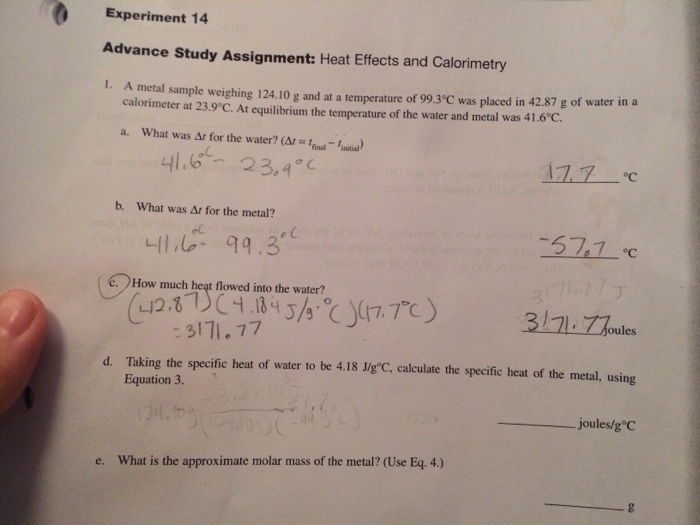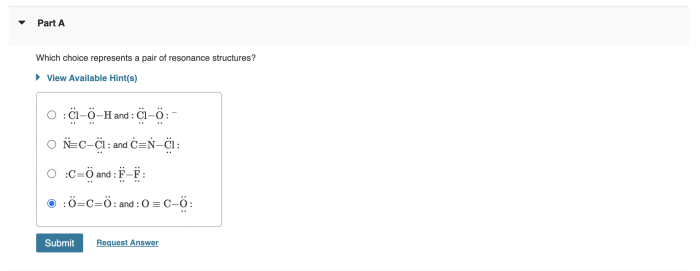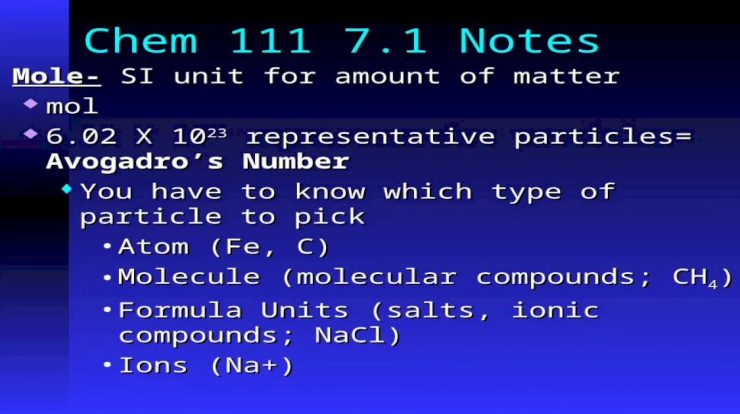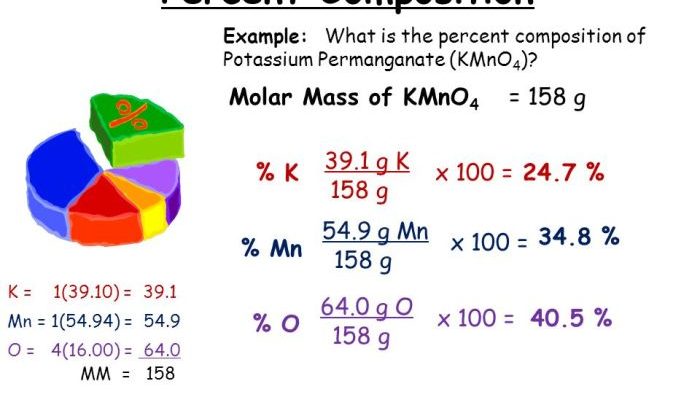Embark on an illuminating journey into Experiment 14 Heat Effects and Calorimetry Advance Study Assignment Answers, where the intricacies of energy transformations unfold before your very eyes. This comprehensive guide delves into the depths of heat capacity, specific heat, and calorimetry, providing a profound understanding of how energy behaves in various systems.
Unveiling the principles and applications of calorimetry, this exploration unravels the mysteries of heat flow, shedding light on its crucial role in fields ranging from chemistry to engineering. Prepare to be captivated as we delve into the advanced study assignment questions, unraveling their complexities with detailed answers, insightful calculations, and thought-provoking discussions.
Experiment 14: Heat Effects and Calorimetry

Experiment 14 aims to investigate heat effects and calorimetry. It involves measuring the heat capacity of a metal and the enthalpy of a chemical reaction using calorimetry techniques.
The experimental setup consists of a calorimeter, a thermometer, and a sample of metal or chemical. The metal or chemical is heated or cooled, and the temperature change is recorded. The heat capacity or enthalpy of the sample can then be calculated from the experimental data.
The variables being measured in this experiment are temperature, mass, and heat flow. The variables being controlled are the initial and final temperatures of the sample and the amount of heat added or removed.
Heat Capacity and Specific Heat
Heat capacity is the amount of heat required to raise the temperature of a substance by 1 degree Celsius. Specific heat is the heat capacity per unit mass of a substance.
Heat capacity and specific heat can be calculated from experimental data using the following equations:
- Heat capacity = Q / ΔT
- Specific heat = Q / (m – ΔT)
where:
- Q is the heat added or removed
- ΔT is the change in temperature
- m is the mass of the substance
The heat capacity and specific heat of a substance depend on its composition, structure, and temperature.
Calorimetry, Experiment 14 heat effects and calorimetry advance study assignment answers
Calorimetry is the measurement of heat flow. Calorimeters are devices that are used to measure the heat flow between two objects or systems.
There are two main types of calorimeters: constant-volume calorimeters and constant-pressure calorimeters.
- Constant-volume calorimeters are used to measure the heat flow at constant volume.
- Constant-pressure calorimeters are used to measure the heat flow at constant pressure.
The principle of calorimetry is that the heat flow between two objects or systems is equal to the change in the internal energy of the system.
The sources of error in calorimetry experiments include heat loss to the surroundings, incomplete combustion, and errors in temperature measurement.
Applications of Calorimetry
Calorimetry has a wide range of applications in various fields, including chemistry, biology, and engineering.
In chemistry, calorimetry is used to measure the enthalpy of reactions. The enthalpy of a reaction is the heat flow that occurs when the reaction takes place at constant pressure.
In biology, calorimetry is used to measure the heat flow associated with metabolic processes. The metabolic rate is the rate at which an organism uses energy.
In engineering, calorimetry is used to measure the heat flow in engines and other thermal systems.
Quick FAQs: Experiment 14 Heat Effects And Calorimetry Advance Study Assignment Answers
What is the primary objective of Experiment 14?
Experiment 14 aims to provide a comprehensive understanding of heat effects and calorimetry, equipping students with the skills to measure and analyze heat flow in various systems.
How is heat capacity distinct from specific heat?
Heat capacity represents the amount of heat required to raise the temperature of an entire object, while specific heat denotes the amount of heat needed to raise the temperature of a unit mass of a substance by one degree.
What are the key applications of calorimetry in scientific research?
Calorimetry finds widespread use in determining the enthalpy of reactions, studying phase transitions, and evaluating the energy content of fuels and food.


